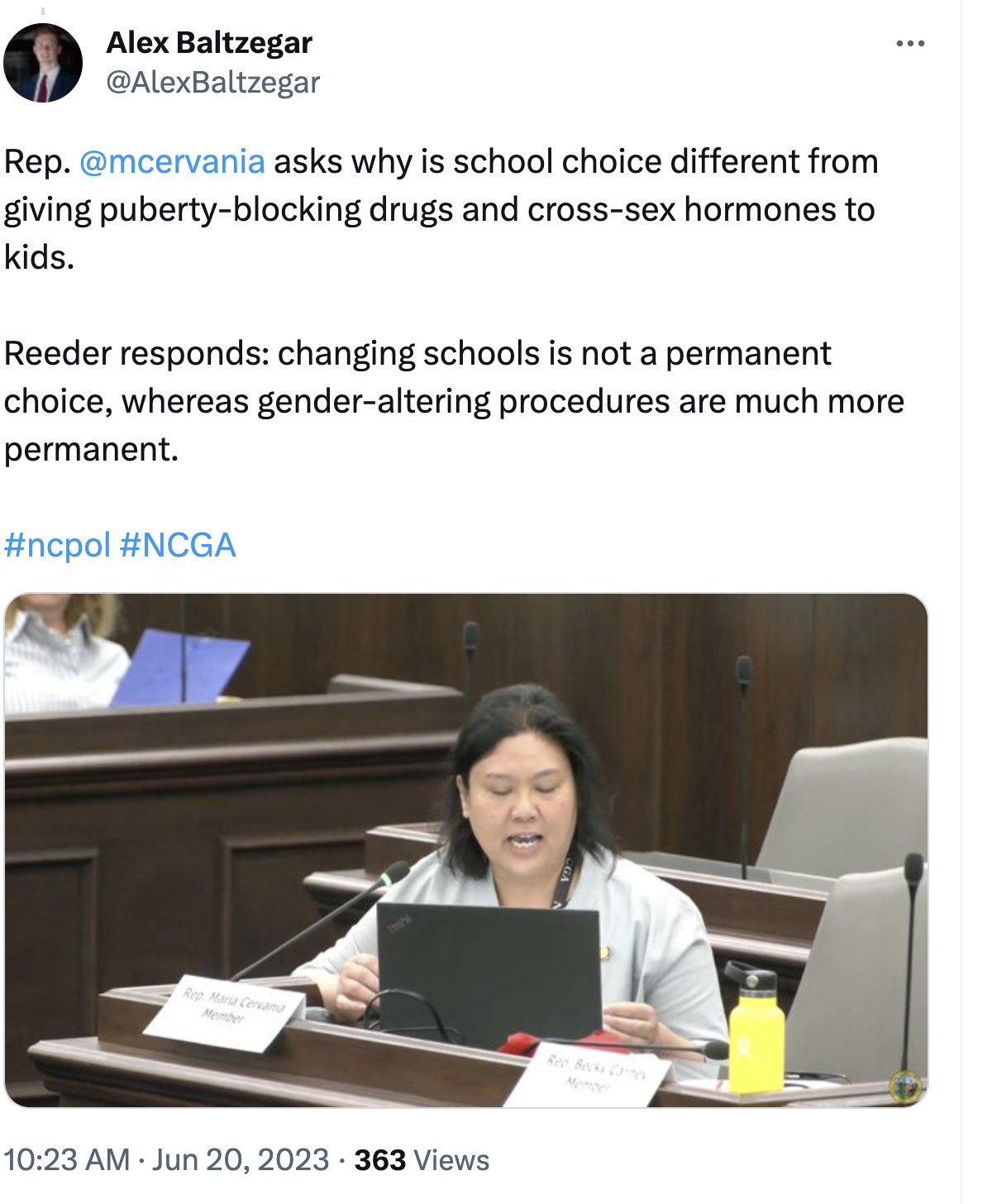The North Carolina House Health Committee passed a measure Tuesday that would ban public health facilities, or any providers under contract with them, from performing surgical gender transition procedures on minors or providing them with puberty blocking drugs.
The Minor Gender Trans. Proc./Public Providers bill is a committee substitute for the Fairness in Women’s Sports Act (S.B. 631), the House version of which is slated to be heard on the Senate floor Tuesday afternoon.
In the committee meeting, Rep. Timothy Reeder, R-Pitt, a physician himself, introduced the bill. Bill opponent Rep. Maria Cervania, D-Wake, pushed back on Reeder, comparing parental consent in gender reassignment surgery to school choice.
“There really is not long-term data on the effects of puberty blockers and surgeries on children,” Reeder told Cervania and committee members. “These procedures are permanent. In North Carolina, you can’t get a tattoo under 18, even with parental consent. I was shocked at that. Parents do have a role; they know their child best, but what this bill says is that for minors—those under 18 in North Carolina—we won’t allow these to be done in state institutions.”
Rep. Steve Tyson, R-Craven, followed Cervania’s analogy with one of his own, asking Reeder whether state law allows parents to buy alcohol and cigarettes for their children.
“Well, I’m not a lawyer—I went to medical school—but I don’t believe the restaurant would allow you to buy an alcoholic drink for your child,” Reeder said.
The ban would apply to the University of North Carolina Health Care System, any provider or facility affiliated with the system, any facility operated by the Division of State Operated Healthcare Facilities, and any local health departments or public hospitals.
S.B. 631 would also prohibit state funds from being used to fund surgical gender transition procedures, puberty-blocking drugs, or hormones in minors, except for those provided under the State Health Plan. The SHP is currently in a legal battle in the case of Kadel v. Folwell, after a U.S. District Court ruling forced North Carolina and West Virginia to fund treatment requested by transgender patients. State Treasurer Dale Folwell is appealing that decision.
There are exceptions in the bill for treatments to correct a “medically verifiable disorder of sex development,” or when a physician has diagnosed abnormal sex chromosome structure. The bill also allows for the repair or treatment of damage cause by infection or injury from previous gender transition procedures. For patients already undergoing such treatments, Reeder said they would have to transfer their care to a private facility.
Prisha Mosley, who underwent surgical operations to transition from female to male as a teenager, talks about the detrimental the effects of treatment to her body. Mosley de-transitioned, but said she still has permanent damage, including being unlikely to conceive a child and a lower voice, in addition to other serious issues.
The bill now goes to the House Rules Committee for consideration.
